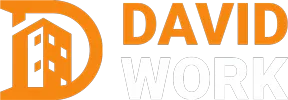There is no place like home. For most people, home is the most critical place in their lives. It is where they raise their families, build memories, and find comfort and security.
There are many reasons why home is so important to people. One of the most important reasons is that it provides stability. People know that they can always come home to a place where people are loved and supported. A home is where they can relax and be themselves without judgment.
Another reason why home is so important is that it is a sanctuary from the world. They can go to their homes and shut out the noise and distractions of the outside world. This can be especially important for people who work in stressful jobs or have many responsibilities outside their homes.
Finally, a home is a significant financial asset. Owning a home can provide a family with financial stability and security during tough times. Additionally, studies have shown that homeownership can help families build wealth over time.
So why is home so important to people? There are many reasons, but some of the most important ones are that it provides stability, sanctuary, and financial security. A home is truly a place that people can call their own, and it is something that everyone should aspire to have in their lives. However, the house is a costly asset, making it out of reach for many people.
This is why it’s essential to understand all the financial options available when purchasing a home. There are many programs and resources available that can help make homeownership more affordable. Additionally, various financing options can help buy a home more manageable. Here are a few to consider.
Mortgage Loans
A mortgage loan is the most common type used to purchase a home. A mortgage loan is a long-term loan secured to buy the house itself. If you default on the loan, the lender can foreclose on your home.
Mortgage loans are typically available from banks, credit unions, and other financial institutions. The terms of a mortgage loan will vary depending on the lender, but they usually need at least 10 percent of the home’s purchase price. Additionally, mortgage loans typically have lower interest rates than other types.
A Federal Housing Administration (FHA) loan is a type of mortgage loan insured by the FHA. FHA loans are available to first-time homebuyers and people with low incomes or credit scores. The down payment can be as down as 3.5 percent of the home’s purchase price.

VA Loans
VA loans are available to veterans, active-duty service members, and their families. Private lenders provide VA loans guaranteed by the Department of Veterans Affairs. This guarantee makes it easier for borrowers to get approved for a loan and get more favorable terms.
VA loans don’t require a down payment, which can be especially helpful for people who don’t have the savings for a down payment on a conventional mortgage loan. Additionally, VA loans have no monthly mortgage insurance premium, which can save borrowers hundreds of dollars per month.
Home Equity Loans
A home equity loan is a type of loan that uses your home as collateral. Home equity loans are available from banks, credit unions, and other financial institutions.
Home equity loans typically have lower interest rates than other types of loans, making them a good option for people who need to borrow money for home improvements or other expenses.
Another benefit of home equity loans is that you can use them for any purpose. There are no restrictions on how you can use the money you borrow.
Personal Loans
Personal loans are another option to finance the purchase of a home. Personal loans are unsecured, meaning they don’t require collateral. This makes them riskier for lenders and results in higher interest rates.
Personal loans are available from banks, credit unions, and online lenders. The terms of a personal loan will vary depending on the lender, but they typically require a down payment of at least 10 percent of the home’s purchase price.
Down Payment Assistance Programs
Down payment assistance programs are available from state and local governments and nonprofit organizations. These programs provide financial assistance to help people with low incomes or poor credit scores afford a down payment on a home.
Down payment assistance programs typically have income and credit score requirements. Additionally, these programs often limit how much money you can receive.
Final Thoughts
There are many financial options available when purchasing a home. It’s essential to research your options and choose the one that best fits your needs. Fortunately, there are many resources available to help you through the process.
You can also consult a housing counselor or real estate agent to learn more about your options. They can help you understand the ins and outs of purchasing a home and guide you through the process.
